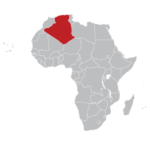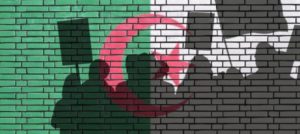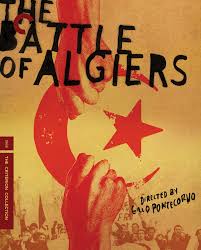
Afrobarometer
The street has stared down the army, and the army has blinked. So the epic standoff in Algeria — Africa’s largest country, the oil-rich neighbor of Libya, strategically situated on the rim of the Mediterranean Sea, gateway to the deep Sahara — continues, The New York Times’s reports:
That it does, even if Algeria is still far from the democracy the street wants, already signals an unusual victory, one making this unfolding and so far bloodless revolution perhaps unique in the Arab world, say the protesters and Algeria analysts.
“What we’ve lived in five months, the Arab world hasn’t seen in 40 years,” said a former government minister and ambassador, Abdelaziz Rahabi, who heads one of the numerous citizen groups that have sprung up since the uprising began and pushed out President Abdelaziz Bouteflika after 20 years in power.

POMED
On July 25, interim President Abdelkader Bensalah announced the creation of a six-member panel to oversee a national dialogue surrounding the country’s transition, adds the Project on Middle East Democracy:
According to a statement from the government, the panel is intended to cover “all aspects related to the organization of this election, its necessary conditions … and the date of the election” and will be led by Karim Younes, a former speaker of parliament. The plan has already been seriously criticized, and during Friday’s demonstrations protesters rejected the membership of Abdulwahab bin Jalloul, a leader of the Islamist El-Binaa National Movement.
Three ongoing confrontations between civil society and governments with their security forces – in Algeria, Sudan and Hong Kong – help to explain why governments are so worried about civil society, argues analyst Marina Ottaway.
 “In all of these cases, protests could be brought quickly to an end by violent means, as the Chinese government did in Tiananmen Square in 1989. Civil society has no power against tanks,” she writes for Middle East Eye. “But there are limits to the power of governments, as well: Civil society is always there, no matter how many people are killed or how many organisations are dismantled.”
“In all of these cases, protests could be brought quickly to an end by violent means, as the Chinese government did in Tiananmen Square in 1989. Civil society has no power against tanks,” she writes for Middle East Eye. “But there are limits to the power of governments, as well: Civil society is always there, no matter how many people are killed or how many organisations are dismantled.”
Repression remains an option for Algeria’s military, but …..
 “It would be very risky for them,” said Nacer Djabi, a leading political sociologist, one of 13 Algerians put forward by a citizens’ group as potential negotiators with the authorities. “And then, they can’t be certain of the instruments of repression themselves,” he added, referring to rank-and-file soldiers in Algeria’s all-volunteer army.
“It would be very risky for them,” said Nacer Djabi, a leading political sociologist, one of 13 Algerians put forward by a citizens’ group as potential negotiators with the authorities. “And then, they can’t be certain of the instruments of repression themselves,” he added, referring to rank-and-file soldiers in Algeria’s all-volunteer army.
“The military authority has all the powers, but it can’t exercise them,” said Moussaab Hammoudi, an Algerian political analyst at the Paris EHESS, the School for Advanced Studies in the Social Sciences.
*A partner of the National Endowment for Democracy.







